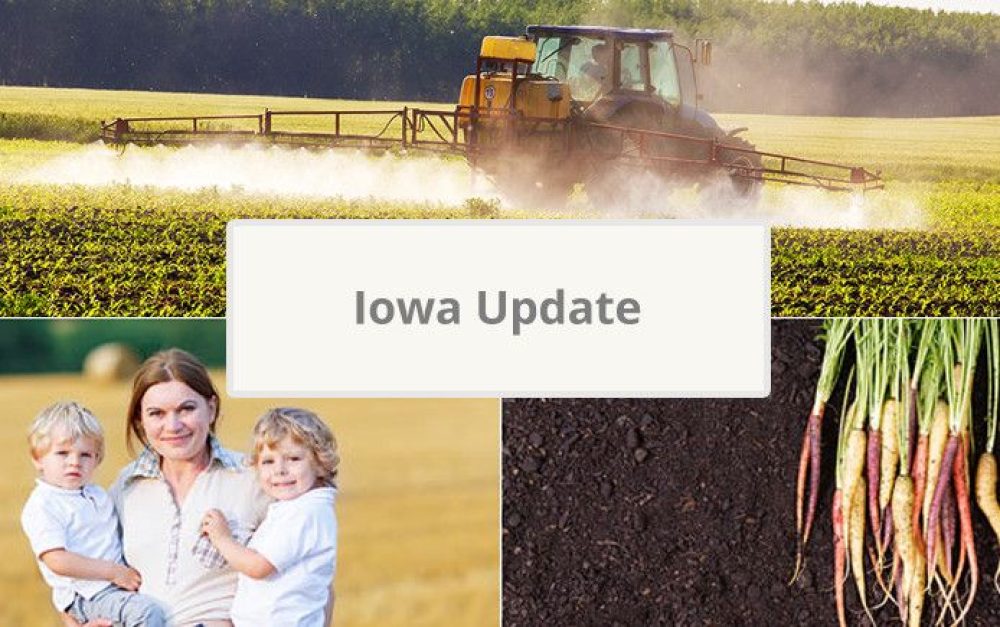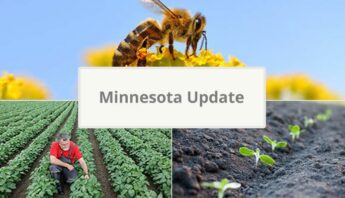The latest out of Iowa: Coronavirus, the legislative session, and staying connected
As Iowa is one of the states in which PAN does on-the-ground campaign work, we send out regular updates on PAN’s and partners’ work in Iowa and beyond — from pesticide-related science to opportunities to take action. If you’d like to receive these updates via email, sign up here.
State updates
At the Capitol: To prevent the spread of Coronavirus, the current Iowa legislative session has been suspended through April 12. We’re supportive of this decision as an important step toward protecting increased spread of the virus. And when the Iowa legislative session resumes, we look forward to continuing the momentum around several legislative priorities, including a bill that would mandate the development of an Iowa Department of Agriculture and Land Stewardship (IDALS) online reporting system for pesticide spray drift for the 2020 growing season. We’ll be sure to keep you posted as things progress.
Nationwide updates
What PAN is doing: Last week, a “shelter in place” order went into effect across California, directing people to stay home except to get groceries or medical care.
We’re able to do this at PAN, and we’re thankful. While many of our usual gatherings and events have been postponed or cancelled, we can shift to operating remotely while also staying connected to our work and to each other. But we’re acutely aware that many of the people we partner with most closely — farmworkers, small farmers and rural families — don’t have this option. As we adjust to new realities each day, this crisis is shining a bright, hot light on just how fragile and inequitable so many systems in this country are — the food system being just one example of many. Read more here.
Latest science
Coronavirus stability in aerosol and on surfaces: The coronavirus outbreak has researchers scrambling to learn more about COVID-19. A new NIH study found that the novel coronavirus was viable in aerosols during the experimental time of three hours. The virus was also found to be more stable on plastic and stainless steel surfaces than on copper and cardboard, and could be detected for up to three days on plastic and stainless steel. On copper and cardboard, the coronavirus survived up to four hours and 24 hours, respectively. Addiitonally, a recent CDC study found some virus RNA on surfaces 17 days after infected passengers vacated a cruise ship. However, the NIH study measured viable virus while the CDC study measured RNA only — it is unclear whether the RNA found on cruise ship surfaces means the virus was still active, the results warrant further testing.
Upcoming events
We encourage you to practice social distancing, but webinars and virtual meetings are a great way to stay connected! Check it out:
Recorded webinar: What ag producers need to know about COVID-19
This webinar, hosted by the AgriSafe Network, shares evidence-based information about COVID-19 and helps agricultural producers identify strategies for responding on their farm.
Take action
Farmworkers are some of the least protected workers in the country — and some of these workers are children. Pediatricians have understood for decades that children are more vulnerable to health-harming chemicals than adults.
The Children’s Act for Responsible Employment and Farm Safety, or CARE Act, would strengthen protections for children working in agriculture, increasing the minimum age for employment and restricting hazardous tasks and working hours.Urge your Representative to support the CARE Act today.








